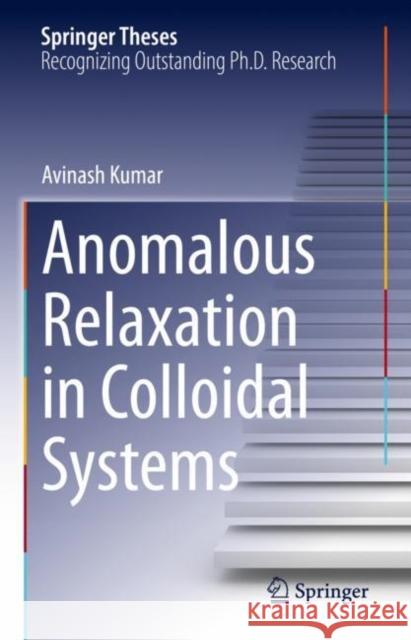Anomalous Relaxation in Colloidal Systems » książka
Anomalous Relaxation in Colloidal Systems
ISBN-13: 9783031132797 / Angielski / Twarda / 2022 / 125 str.
Anomalous Relaxation in Colloidal Systems
ISBN-13: 9783031132797 / Angielski / Twarda / 2022 / 125 str.
(netto: 614,84 VAT: 5%)
Najniższa cena z 30 dni: 616,85
ok. 16-18 dni roboczych.
Darmowa dostawa!
The thesis presents a systematic study of the Mpemba effect in a colloidal system with a micron-sized particle diffusing in a water bath. While the Mpemba effect, where a system’s thermal relaxation time is a non-monotonic function of the initial temperature, has been observed in water since Aristotle’s era, the underlying mechanism of the effect is still unknown. Recent studies indicate that the effect is not limited to water and has been studied both experimentally and numerically in a wide variety of systems. By carefully designing a double-well potential using feedback-based optical tweezers, the author demonstrates that an initially hot system can sometimes cool faster than an initially warm system. The author also presents the first observation in any system of another counterintuitive effect—the inverse Mpemba effect—where the colder of the two samples reaches the thermal equilibrium at a hot temperature first. The results for both the observations agree with theoretical predictions based on the Fokker-Planck equation. The experiments reveal that, for carefully chosen conditions, a strong version of both of the effects are observed where a system can relax to the bath temperature exponentially faster than under typical conditions.
The thesis presents a systematic study of the Mpemba effect in a colloidal system with a micron-sized particle diffusing in a water bath. While the Mpemba effect, where a system’s thermal relaxation time is a non-monotonic function of the initial temperature, has been observed in water since Aristotle’s era, the underlying mechanism of the effect is still unknown. Recent studies indicate that the effect is not limited to water and has been studied both experimentally and numerically in a wide variety of systems. By carefully designing a double-well potential using feedback-based optical tweezers, the author demonstrates that an initially hot system can sometimes cool faster than an initially warm system. The author also presents the first observation in any system of another counterintuitive effect—the inverse Mpemba effect—where the colder of the two samples reaches the thermal equilibrium at a hot temperature first. The results for both the observations agree with theoretical predictions based on the Fokker-Planck equation. The experiments reveal that, for carefully chosen conditions, a strong version of both of the effects are observed where a system can relax to the bath temperature exponentially faster than under typical conditions.











